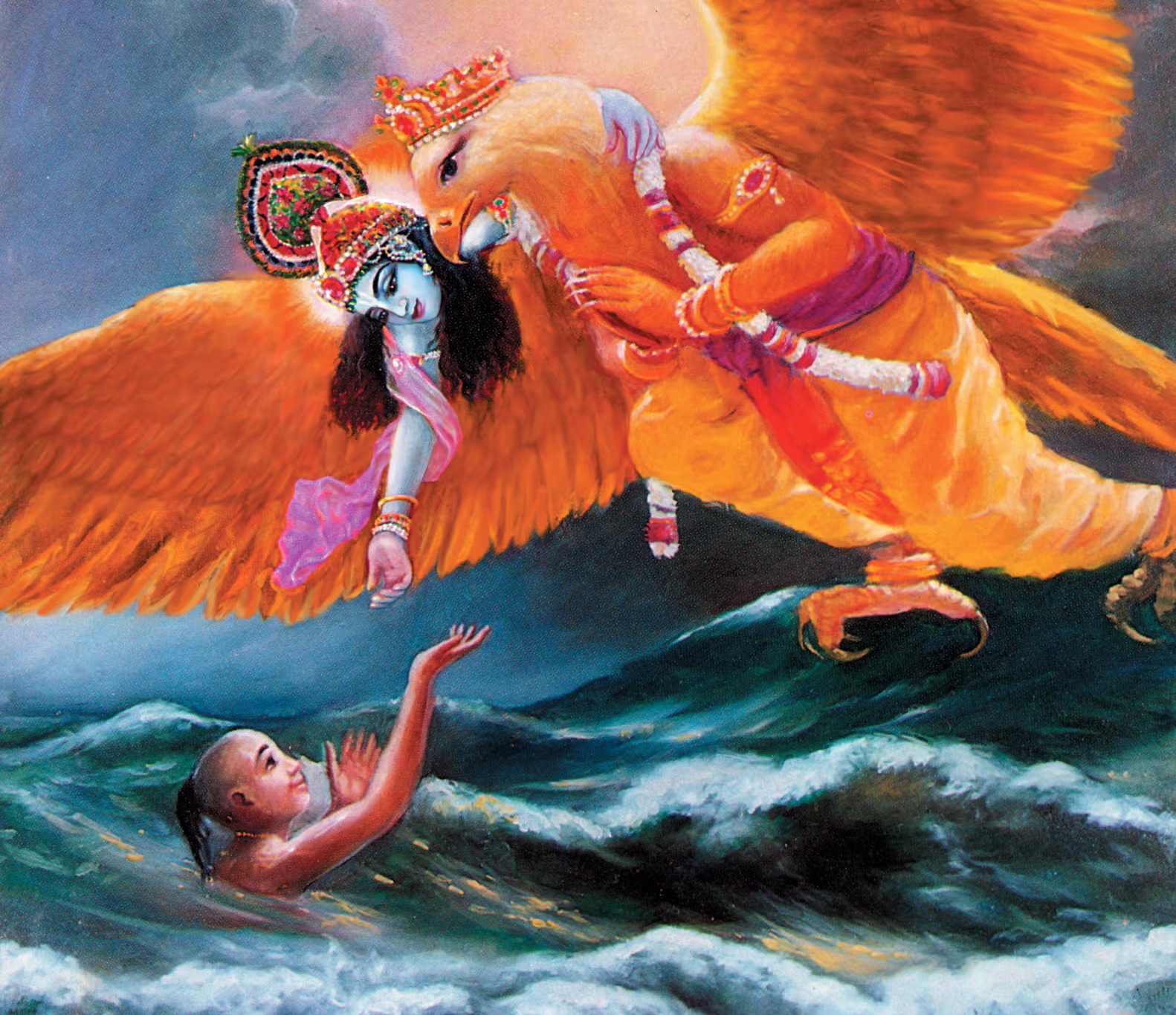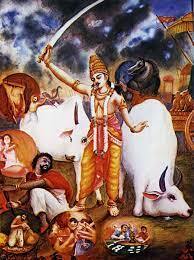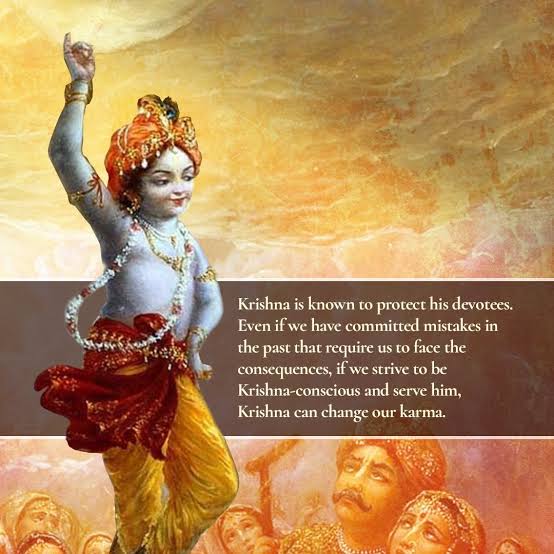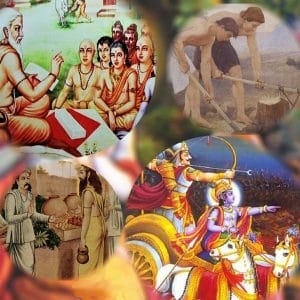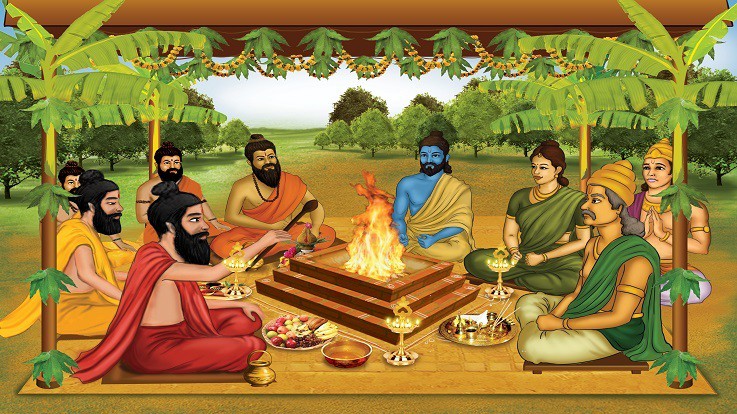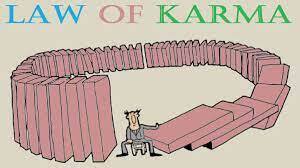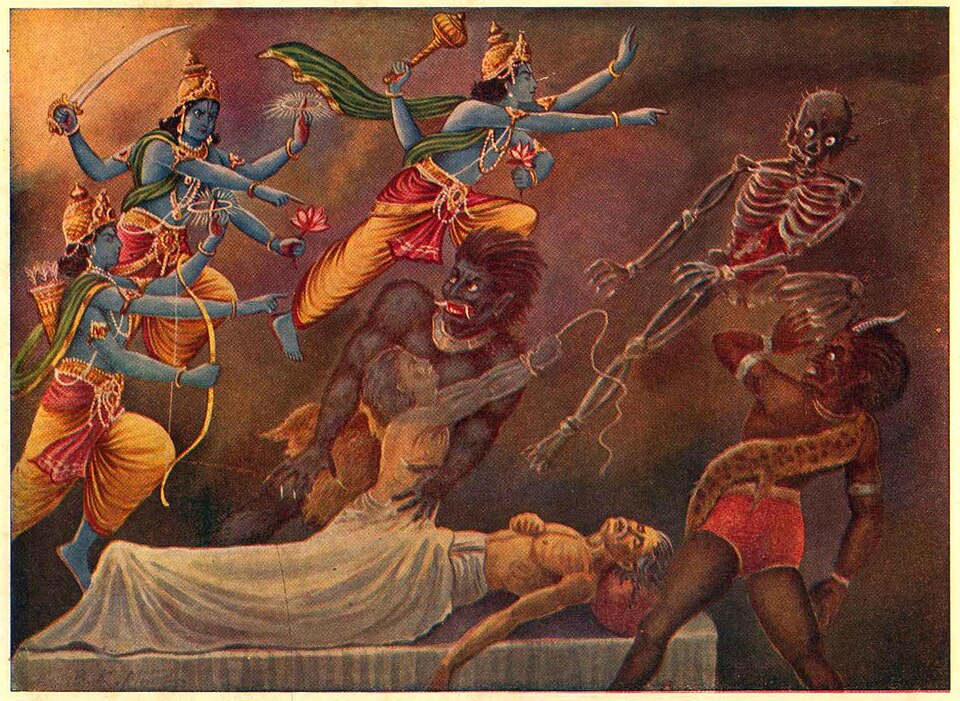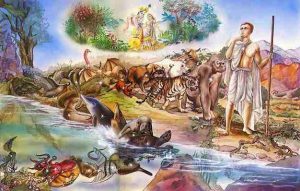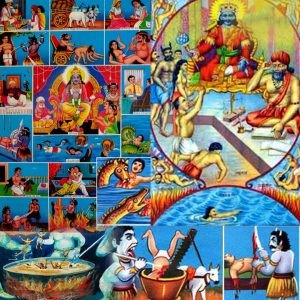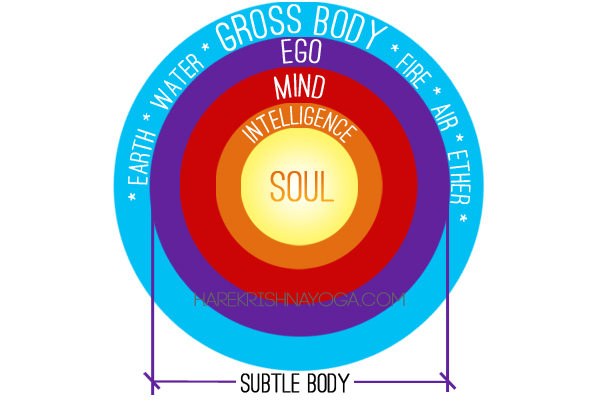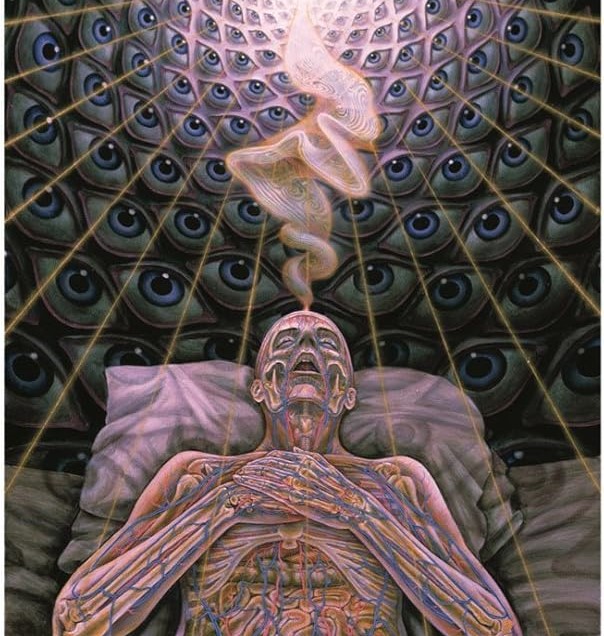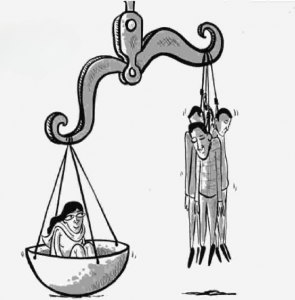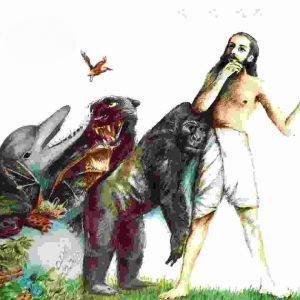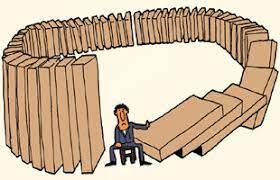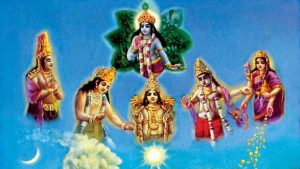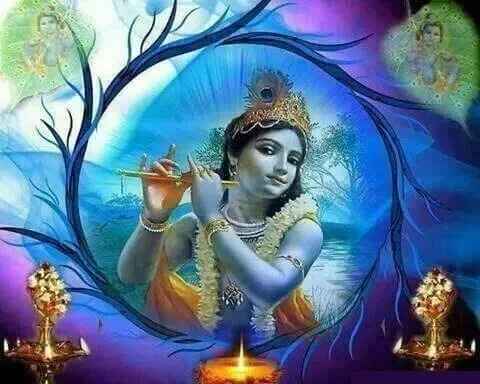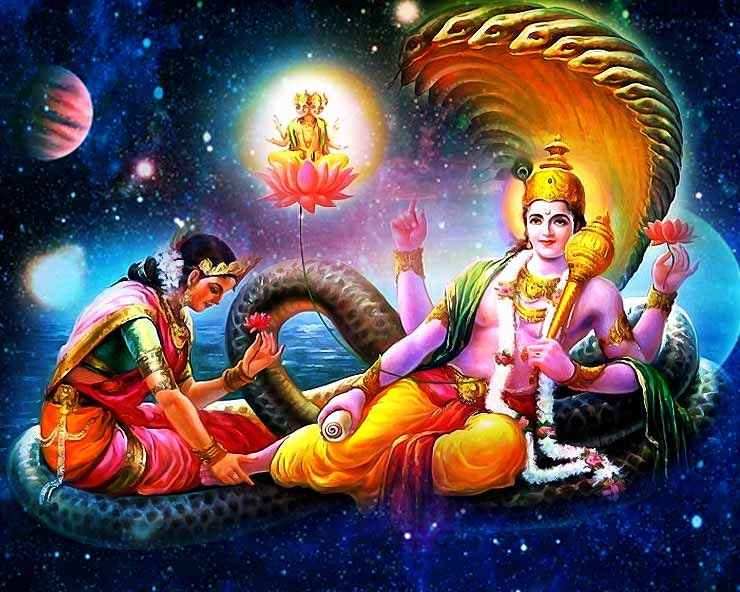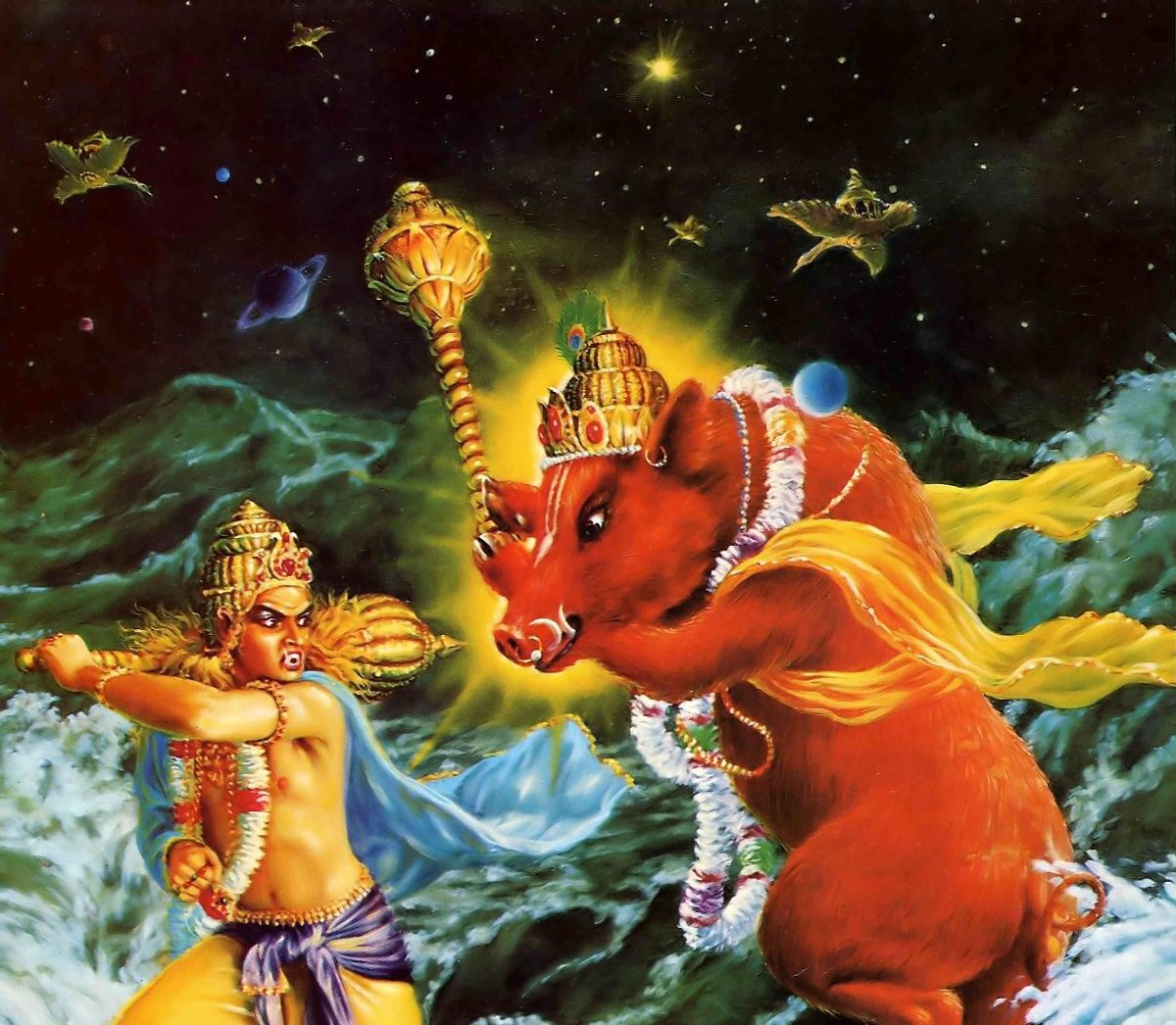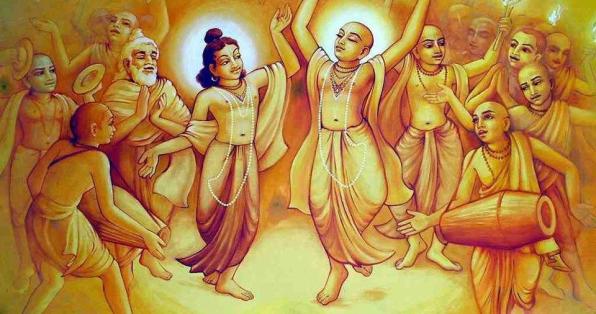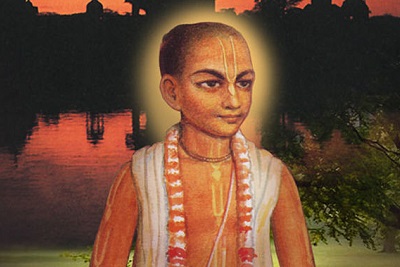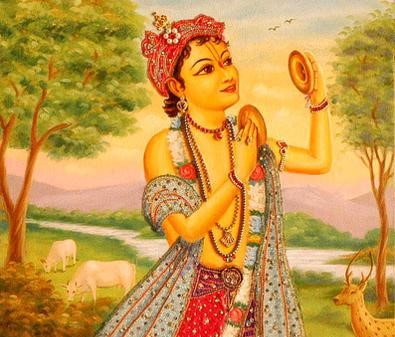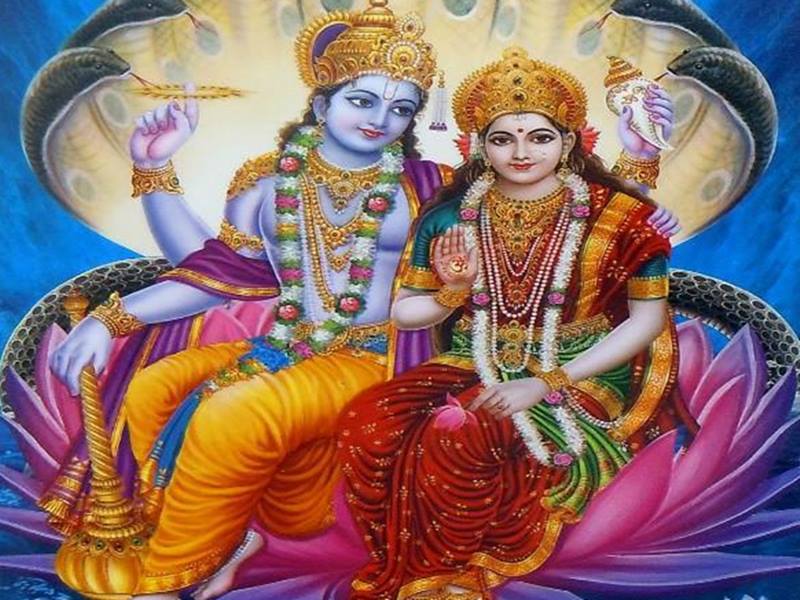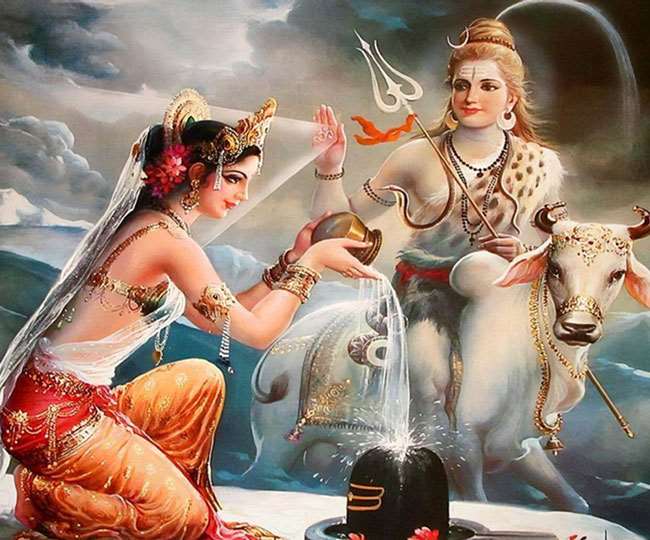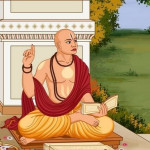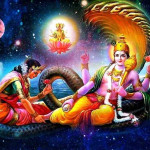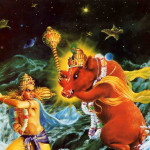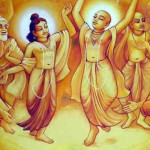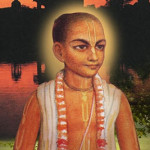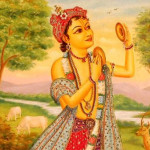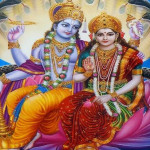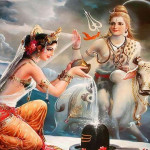How past karma are responsible for present distress?
Another name of the Paramatma feature of the Lord is Kala or perpetual time. Eternal time is the witness of all our actions, good and bad, and thus resultant reactions are awarded by Him. It is no use saying that we do not know why we are suffering. We may forget the misdeed for which we may suffer at this present moment, but we must remember that Paramatma is our constant companion and therefore He knows everything – past, present, and future. And because the Paramatma feature of Lord Krishna destinies all actions and reactions, He is the Supreme controller also. Without His sanction, not a blade of grass can move. The living beings are given as much freedom as they deserve, and misuse of that freedom is the cause of suffering. The followers of the Lord do not misuse their freedom, and therefore they are the good sons of the Lord. Others, who misuse freedom, are put into miseries destined by the eternal Kala. The Kala offers conditioned souls both happiness and miseries. It is all predestined by eternal time. As we have miseries uncalled for, so we may have happiness also without being asked, for they are all predestined by Kala. No one is therefore either an enemy or friend of the Lord. Everyone is suffering and enjoying the consequence of his own destiny. This destiny is made by living beings in the course of social dealings. Everyone here wants to Lord it over the material nature, and thus everyone creates his own destiny under the supervision of the Supreme Lord. He is all-pervading and therefore He can see everyone’s activities. And because the Lord has no beginning or end, He is known also as the eternal time, Kala.
In Bhagavad-gita, the Lord says that one should surrender unto Him, giving up all other engagements. The Lord also gives His word there that He will protect surrendered souls from the reactions of all sinful activities. Srila Rupa Gosvami says that the sufferings from sinful activities are due both to the sins themselves and to sins committed in our past lives. Generally, one commits sinful activities due to ignorance. But ignorance is no excuse for evading the reaction – sinful activities. Sinful activities are of two kinds: those which are mature and those which are not mature. The sinful activities for whom we are suffering at the present moment are called mature. The many sinful activities stored within us for which we have not yet suffered are considered immature. For example, a man may have committed criminal acts, but not yet been arrested for them. Now, as soon as he is detected, an arrest is awaiting him. Similarly, for some of our sinful activities we are awaiting distresses in the future, and for others, which are mature, we are suffering at the present moment.
In this way, there is a chain of sinful activities and their concomitant distresses, and the conditioned soul is suffering life after life due to these sins. He is suffering in the present life the results of sinful activities from his past life, and he is meanwhile creating further suffering for his future life. Mature sinful activities are exhibited if one is suffering from some chronic disease if one is suffering from legal implication, if one is born in a low and deprived family or if one is uneducated or very ugly.
There are many results of past sinful activities for which we are suffering at the present moment, and we may be suffering in the future due to our present sinful activities. But all of these reactions to sinful deeds can immediately be stopped if we take to Krishna consciousness. As evidence for this, Rupa Gosvami quotes from Srimad-Bhagavatam, Eleventh Canto, Fourteenth Chapter, verse 19. This verse is in connection with Lord Kṛṣṇa’s instruction to Uddhava, where He says, “My dear Uddhava, devotional service towards me is just like a blazing fire which can burn into ashes unlimited fuel supplied to it.” The meaning is that as the blazing fire can burn any amount of fuel to ashes, so devotional service to the Lord in Krishna consciousness can burn up all the fuel of sinful activities. For example, in the Gita Arjuna thought that fighting was a sinful activity, but Krishna engaged him on the battlefield under His order, and so the fighting became devotional services. Therefore, Arjuna was not subjected to any sinful reaction.
Source: A.C. Bhaktivedanta Swami Prabhupada (2011 edition), “The Nector of Devotion”, Page 4
A.C. Bhaktivedanta Swami Prabhupada (2014 edition), “Teachings of Queen Kunti”, Page 75


